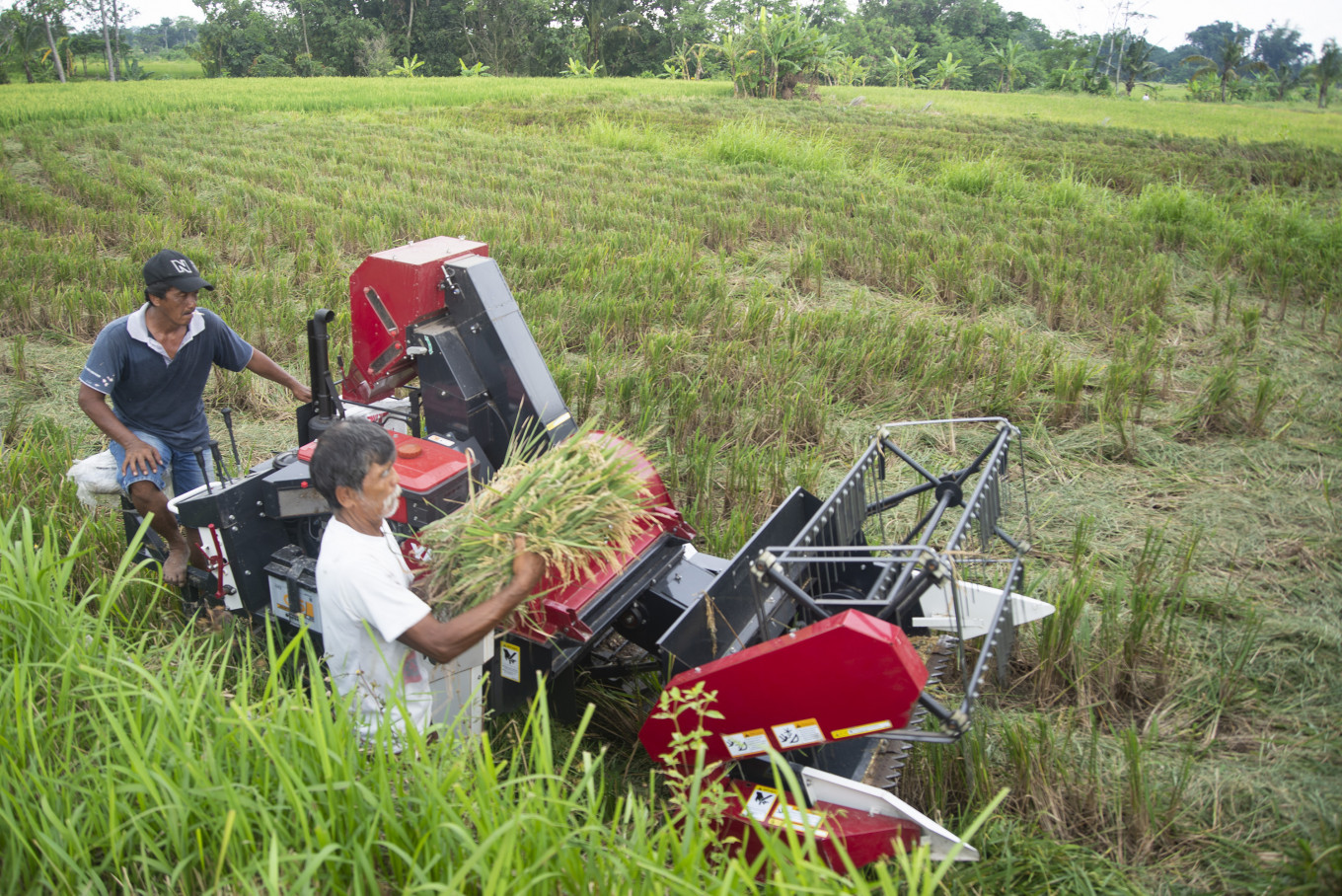Popular Reads
Top Results
Can't find what you're looking for?
View all search resultsPopular Reads
Top Results
Can't find what you're looking for?
View all search resultsCOVID-19: Keeping food supply chains open will help us all survive this stress test
It is critical that governments and the industry come together now to ensure that food supply chains remain open and that the production of food is unhindered so that consumers can have continued access to safe, healthy and nutritious food during this pandemic.
Change text size
Gift Premium Articles
to Anyone
A
pandemic like COVID-19 leaves catastrophic and far-reaching effects on economies, jobs, health and normal ways of living, and countries around the world today are being forced to urgently step up to the plate by taking extraordinary action to tackle the crisis.
Over the past weeks, we have seen governments implementing additional precautionary measures – from travel bans and nationwide lockdowns to intensified border control inspections and regulations – in a bid to contain the spread of COVID-19.
While deemed necessary for the nation’s health and safety, some of these measures can potentially have a damaging impact on a country’s food security.
It is therefore critical that governments and the industry come together now to ensure that food supply chains remain open and that the production of food is unhindered so that consumers can have continued access to safe, healthy and nutritious food during this pandemic.
This is especially important for the ASEAN region, where the food value chain is highly integrated and involves multiple stakeholders. What we must do is ensure each country keeps its supply chain open. Closure or disruptions of food supply chains in one country could have a devastating impact on people in other countries and we are already starting to see this play out following the decision made by some governments to suspend the export of staples and other commodities.
If countries across the region start to follow suit and implement such protectionist measures and effectively close their supply chains, consumers will face even more problems getting access to healthy food and adequate nutrition, especially during this time of crisis.
At the same time, closing off food supply chains within ASEAN will also have extensive economic impacts because the food value chain in the region is a major driver of nations’ gross domestic product (GDP) and employment. Alone, it contributes around US$500 billion of economic output – about 17 percent of ASEAN’s GDP – and 113 million jobs.
To prevent such issues, which bring added pressure to this already critical situation, governments need to consider the food and beverage industry as essential infrastructure, and minimize disruptions to the region’s food supply chain; an important move at a time when more countries in the region are tightening border access and restricting the flow of labor and non-essential goods.
This means, in the first instance, making sure that their countries’ food supply chains can continue to operate at full capacity. Where possible, and with the industry’s cooperation to reinforce efforts to keep employees safe and healthy, there should be exemptions made to measures that restrict the movements of workers to and from food manufacturing facilities so that the production of food and beverage products is not hampered. In doing so, the industry and government bodies must also ensure the adequate supply of personal protective equipment (PPE) so that workers are well-equipped and protected.
Governments need to also ensure that the measures they put in place do not delay or disrupt the flow of manufactured products, ingredients and raw materials including food packaging material. For instance, blockages imposed on transport routes should not affect the flow of food and beverage items into a country. Transport vehicles that are delivering essential food items should be granted entry permission and be exempted from restrictions across national, state and district borders. This can be done by implementing green lanes that allow essential food and animal feed to pass through with minimal delays.
The more vulnerable and food-insecure countries (i.e. where there is more demand but less supply) should also be supported by those that are more resilient and have more supplies, particularly in perishable and associated items. This would mean reducing tariffs to facilitate the flow of needed food and commodities during COVID-19.
At the same time, it is equally important that governments ensure that the retail sector can continue selling food and beverages uninterrupted so that people have easy and convenient access.
At an industry level, we recognize that companies must also adapt to the challenges today and continue to provide access to essential food and beverage products amid changing consumer needs during the crisis.
We are already seeing a number of food companies shift their production to focus on packaged and frozen foods to meet the surge in demand from consumers who require packaged food with a longer shelf-life as they experience longer movement control orders around the region.
It remains uncertain when the coronavirus pandemic will be fully contained but it is critical that governments continue to keep their people assured that they will have access to essential food.
Countries need to remain calm and come together in solidarity instead of resorting to protectionist measures that restrict the flow of food as these will only serve to sow division, lead to retaliatory action and instigate further panic in various parts of the region.
Now, more than ever, is the time for us to take action collectively to keep food supply chains open and to protect the flow of food so that consumers can continue to get necessary access to safe and high quality food to help people get through this pandemic.
***
Matt Kovac is executive director of Food Industry Asia (FIA)











